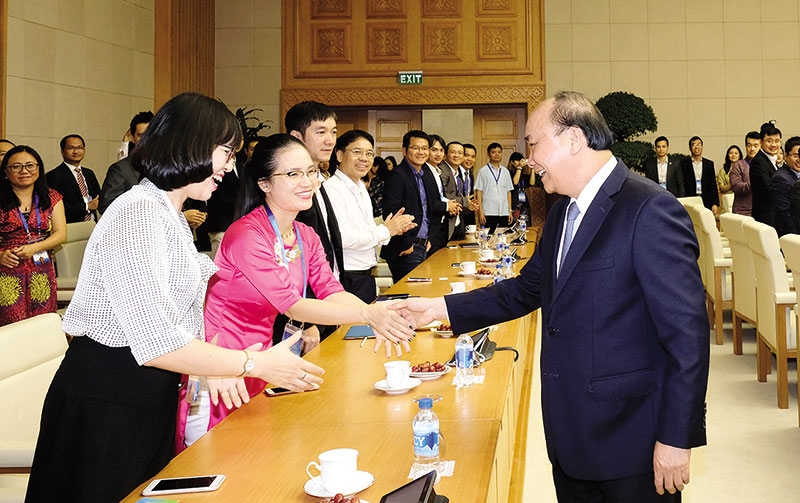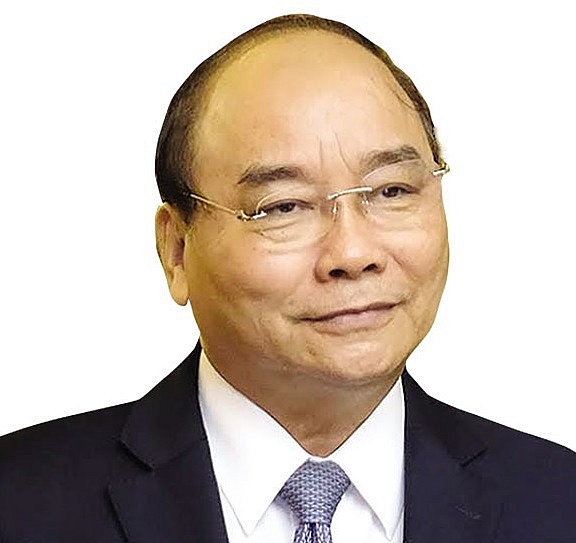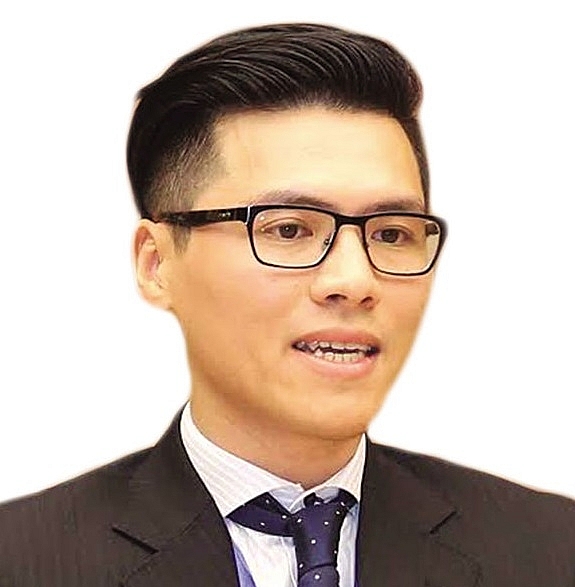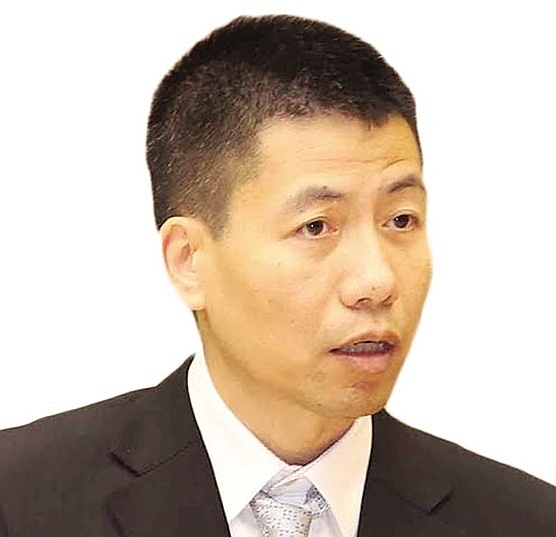Vietnamese expats bring Industry 4.0 talent home
 |
| Vietnamese expats bring Industry 4.0 talent home |
In order for them to contribute to Vietnam’s development and help it meet the challenges of Industry 4.0, the Vietnamese government has called on 100 young, talented Vietnamese people working overseas in the science and technology fields to come home and apply their skills and experience in the homeland.
Tran Thi Nhu Hoa, deputy head of the Vietnamese Student Association in South Korea and one of the 100 people selected in the Vietnam Innovation Network Programme led by the Ministry of Planning and Investment, used just one word, “love”, to describe the feeling that overcame her as she was given this opportunity. Hoa proudly told VIR, “I am sure that I will return home to work for a university in Ho Chi Minh City. I will bring South Korea’s highest technology and transfer it to Vietnam.”
The programme aims to gather and mobilise the best human resources from overseas Vietnamese experts and connect them with domestic operations to change Vietnam’s technological development. Many Vietnamese experts are making their mark in their respective fields, not only in their adopted countries, but, like Hoa, a well-known researcher on early diagnoses of Alzheimer’s disease, also in their home country.
Brain connectivity worldwide
Minister of Planning and Investment Nguyen Chi Dung, who leads the Vietnam Innovation Network Programme, stressed that Vietnamese professionals with technical
capacities combined with international experience will be a crucial resource to ensure the successful implementation of the government’s Industry 4.0 strategy, bringing rapid technological changes to Vietnam and allowing the country to transform along with the global economy.
“Industry 4.0 is booming and has made it possible for developing countries like Vietnam to restructure their economy and create a breakthrough in development. Innovation was already the key before and the shortest way to achieve fast and sustainable development. Countries which do not seize this opportunity will not be able to succeed,” said Dung.
Professor Ngo Bao Chau, the first Vietnamese person ever to win the Fields Medal, the world’s most prestigious award in the field of mathematics, said that connectivity is key for technology advancements and a prosperous country, but added, “There must be a platform to gather the demand, resources, process, competencies, and management. If we don’t have that, I am afraid we will not succeed.”
This is not the first time that the Vietnamese government has tried to encourage overseas Vietnamese to return and partake in helping build the country indirectly or directly. The Vietnamese government has held the view that “overseas Vietnamese are an integral part of and a powerful resource for Vietnam” that was initiated by President Ho Chi Minh. It is a strategy used throughout Vietnam’s development record over the past decades, particularly during the economic reforms, launched in 1986, that spurred the country’s rapid economic growth and development, and transformed Vietnam from one of the world’s poorest nations into a lower middle-income country.
As an inspiration to the people gathered at the recent network conference, Vo Quang Hue, deputy CEO of Vingroup and responsible for the Vinfast automotive project, said that the dream of “made-in-Vietnam” products is a dream of serving the country.
Hue, with 24 years of experience working for well-known global groups including Bosch, said, “I now live with the desire to contribute to building the country. I am happy because every day, my partners and I work towards a dream of creating a Vietnamese-made car, and it is going to become true.”
Opportunities for talented people
Hue said that tens of thousands of foreigners hold leading positions in Vietnam, including in international corporations and local businesses. “That indicates a number of interesting things. For instance, the opportunities to work as well as the work environment cannot be too inferior to other places in the world,” he said
Leading groups Vingroup, FPT Group, and Viettel, during meeting the 100 talented individuals, showed their eagerness to co-operate with them on many major issues arising in the process of Industry 4.0, including e-government, smart healthcare, smart traffic, smart manufacturing, and finance and banking.
“Industry 4.0 offers a wonderful chance for Vietnam to digitise its operations. The co-operation between young Vietnamese professionals who possess extensive expertise as well as experience on one side and technological enterprises which have promising projects on implementing the latest technologies into their operations on the other will help Vietnam become a pioneer in digital transformation,” said FPT Group’s chairman Truong Gia Binh.
Vingroup also plans to expand into artificial intelligence (AI), software, and big data and set up a Silicon Valley-style tech hub in Hanoi. VinTech would specialise in developing AI products, software programmes, and new-generation materials.
Meanwhile, Hoa from the Vietnamese Student Association in South Korea, said that Vietnam is holding golden opportunities, and “this network programme is expected to gather ‘power’, and turn brain drain into brain gain. Overseas Vietnamese are a valuable asset to their home land, even though they live in other nations.”
| Nguyen Xuan Phuc - Prime Minister
The government will make full use of Industry 4.0 to raise the economy’s performance and efficiency, thus improving the quality of people’s lives and the economy’s scale. National development will not be feasible without innovation. The government is proactively devising its national strategy on Industry 4.0, which is considered one of the solutions to create innovation centres in technological parks, with Hanoi’s Hoa Lac Hi-Tech Park being the first. The innovation network should be developed continuously. Vietnam needs many innovation centres and networks which serve as the foundation for raising value and improving the competitiveness of the economy. Thus the government always focuses on investment co-operation and technology transfers, training human resources and developing the innovation eco-system, including the legal framework for the digital economy. Pham Quang Cuong - Lecturer at Nanyang Technological University, Singapore
As a researcher of robotics, the news that Vinfast has just developed an automobile factory with a high rate of automation is a good signal for the sector. Several years ago, robotics was considered to be academic and far from the reality in Vietnam. However, Vinfast has already ushered in a new era for robot manufacturers and automation researchers like me in the country. I hope that more and more factories with high rates of automation will be developed in Vietnam, and that the machines, equipment, and robots inside will be made by Vietnamese companies. In Vietnam’s strategy to strengthen science and technology applications, it should focus on robotics and automation in addition to artificial intelligence. This is a high-potential sector, but it may make negative impacts on working conditions and employment. Therefore, we should promulgate new policies to protect the rights of labourers and ensure social welfare in the era of Industry 4.0. Vu Le Ha - Researcher at Monash University, Australia
Vietnamese talent should be mobilised to develop technical applications for Vietnam. Thus, the government should do its utmost to encourage overseas Vietnamese experts to come back to the homeland. They will be able to dominate technology and develop and export high-tech applications, which are very highly competitive products on the market. Additionally, we should focus on training human resources for technology transfers and development in the long term. |
What the stars mean:
★ Poor ★ ★ Promising ★★★ Good ★★★★ Very good ★★★★★ Exceptional
 Tag:
Tag:
Related Contents
Latest News
More News
- Foreign leaders extend congratulations to Party General Secretary To Lam (January 25, 2026 | 10:01)
- 14th National Party Congress wraps up with success (January 25, 2026 | 09:49)
- Congratulations from VFF Central Committee's int’l partners to 14th National Party Congress (January 25, 2026 | 09:46)
- 14th Party Central Committee unanimously elects To Lam as General Secretary (January 23, 2026 | 16:22)
- Worldwide congratulations underscore confidence in Vietnam’s 14th Party Congress (January 23, 2026 | 09:02)
- Political parties, organisations, int’l friends send congratulations to 14th National Party Congress (January 22, 2026 | 09:33)
- Press release on second working day of 14th National Party Congress (January 22, 2026 | 09:19)
- 14th National Party Congress: Japanese media highlight Vietnam’s growth targets (January 21, 2026 | 09:46)
- 14th National Party Congress: Driving force for Vietnam to continue renewal, innovation, breakthroughs (January 21, 2026 | 09:42)
- Vietnam remains spiritual support for progressive forces: Colombian party leader (January 21, 2026 | 08:00)

























 Mobile Version
Mobile Version